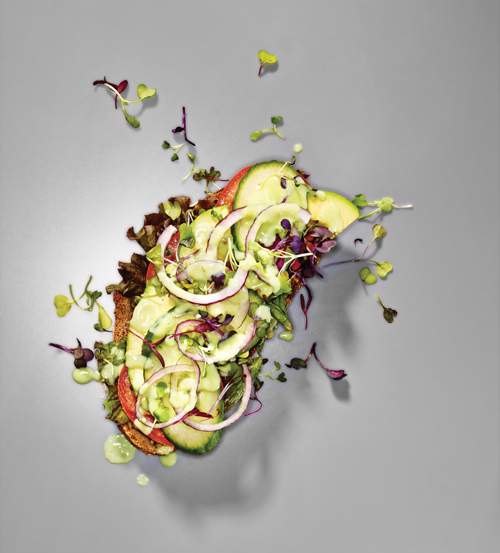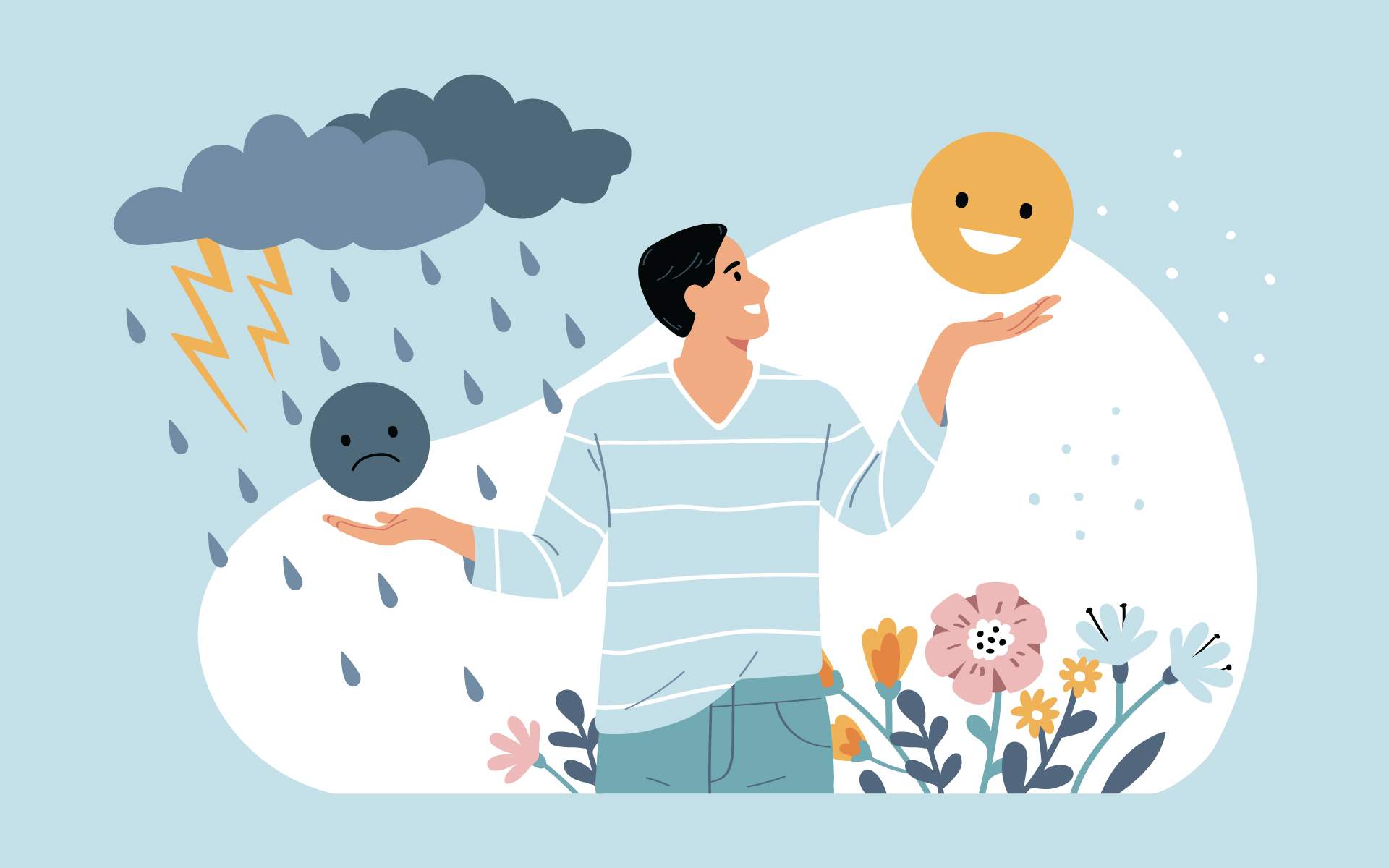We all live tense, stress-filled lives packed with back-to-back meetings, appointments, and tasks. Perpetual busyness, which used to be intermittent enough that we could see contrast between chock-full days and the others, seems like it might be the new norm in the 21st century. Socked in with activity; no break in our schedules.
So what can we do to clear the air? To function with competence calls for perspective that’s hard to find when we’ve got our heads down, forging through a neverending to-do list, hoping things will work out. The kind of perspective that brings focus and clarity comes from space. And while we may not always have a choice about clearing our calendars, we can make the choice to clear our minds of the habitual momentum that blocks creativity and compassion. And, at times, we may find that access to creativity and compassion can lead to a little more space in the day. In any event, we can always begin to be more mindful of our busyness and how we are choosing to meet the moments of our daily lives.

If we are able to take a break, a vacation, a retreat, or just spend some time in nature, we notice that we return replenished and ready to make a positive difference. But that feeling doesn’t last. And that kind of break is not usually on our schedules. What, then, can we do? One powerful tool is taking Purposeful Pauses, mini-breaks in the momentum and speed of our mind and our days. They give us the space to reset and re-center, and when we do, we’re more likely to make conscious choices about our work and our activities that are productive, creative, and compassionate. And, most importantly, they take hardly any time at all.
A Purposeful Pause interrupts the fog that gathers when we’re on autopilot, pushing our way through the day. It’s not all that hard to bring about a break in the clouds and when we do, we can gain new perspective on each moment. Try experimenting with these five ideas, and see if your days begin to feel a little different.
The training isn’t difficult; it’s remembering to take a pause that’s the hard part. Little by little, you will begin to more quickly notice when you are not present. And little by little, as your meditation practice grows and you become more familiar with your body sensations and the activity of your mind, you’ll find your own ways to experiment with Purposeful Pauses to support you during even the most chaotic days.
Be gentle and patient with yourself. Most of us have lived lives of such constant distraction that learning how to be more present takes some time. Like fitness for the body, however, the reward for training your mind and opening your heart is the potential to live your best life. Mindfulness practices like the Purposeful Pause can teach you how to bring some sunshine to those gray busy days.
1. Start your day with a drink
When I described this Purposeful Pause to a group for the first time, I got some pretty strange looks. I had to clarify that I wasn’t advocating alcohol for breakfast! What I actually do suggest is that the first Purposeful Pause of the day be a mindful cup of coffee or tea.

What to do:
- Begin with the intention to notice the experience. Whether you make your own coffee or tea, or buy it, you can start by paying attention to its preparation. Notice what your body senses as you prepare for, and drink, your beverage: the sounds in the room, the aroma of the coffee, the warmth of the cup in your hand, the taste as you take that first sip, and the feelings of warmth as the coffee is swallowed.
- Don’t multitask: no phones, laptops, newspapers, etc. Just meet the moment with your drink in hand, and when your mind takes you away, for example, to review your morning to-do list, redirect your attention back to the experience of drinking your coffee.
- When we begin our day with this Purposeful Pause, we are intentionally engaging in a mini-training of our mind to be present. We use our body’s sensations to keep us grounded in the present. And, rather than letting the coffee get cold while we are distracted by texts or to-do lists, or missing the experience completely so that we wonder if we actually had a cup of coffee, when we finish and turn to the next task at hand, our attention is rested and ready to engage.
2. Use the door
Workday mornings can be pretty hectic. Even if the alarm goes off on time and we’ve had our mindful morning drink, there’s always something: a sick child or one with lost homework, a car that won’t start, an unexpected phone call. Even without family or domestic crises filling our mornings, there’s still no predicting how traffic will be or what mass transit delays we may encounter. Such unexpected life challenges can mean we arrive at our workplace feeling stressed. This is the perfect time to use the door.
What to do:
- As you approach the door, check in with yourself. Bring your mind to where your body is, about to transition into a new situation. Let the door handle, if there is one, be your cue. It’s a natural place to pause for a brief moment before you open the door. This time, when you start to reach for the handle, let it remind you to do a quick check: notice whether you are present for this moment of your life.
- Bring your attention to the sensations in your body: the feel of the door handle, muscles tensing to push the door open, the
temperature differences between outside and inside, the sounds in the street or the lobby, the feeling of your breath in your body. If it’s an automatic door, or a revolving door, adapt the exercise by watching for the moment when you trigger the opening mechanism, or paying attention to timing your entry as it revolves. - These few moments of deliberately paying attention to your experience of arriving at work, of deliberately noticing whatever is there for you to notice, can help you feel more centered as you begin your day.
3. Resist becoming a monday-morning quarterback
A Monday-morning quarterback is someone whose critique depends on hindsight. How often, after a string of meeting-filled days, do we Monday-morning-quarterback ourselves, wondering how time slipped away while we attended to the loudest screamers and never managed to get around to what’s really important? In each play, a good quarterback needs to see the big picture and know the best way to allocate resources, using foresight more than hindsight. For us to be good quarterbacks in our lives, we need to become “every-morning quarterbacks”—we have to take a closer look at what’s happening day by day, and keep the big picture in mind. An every-morning quarterback makes conscious choices about the way each day is met.
What to do:
- Begin with a Purposeful Pause before you head off to that first appointment or meeting. Take a few moments to look—really look—at your calendar for the day. Is there room in your day to attend to what is important? Have you allotted time for taking care of yourself physically and emotionally? Are you attending some meetings simply out of habit? Are there other meetings that serve no real purpose?
- When we spend most of our time putting out fires, we can’t attend to what is important—strategically or personally. It’s depleting and ultimately not sustainable. Besides, many fires burn themselves out harmlessly without any intervention at all.
So, if you haven’t been making time in your schedule for what’s important to you and to your work, or if you have been mindlessly attending meetings with little or no purpose, experiment with making one small change to your calendar each day. This may take some courageous leadership because in the short term, it is easiest to just go along with the craziness. But if there is no catalyst, nothing transforms. And remember, it need not be a big change, just a small step. - Be disciplined about this practice until it becomes a habit. And never underestimate the ripple effect of those small changes.
Tip: Don’t just slavishly follow what your calendar tells you to do. Carefully look at the whole week or month. Does the shape of it make sense? Adjust accordingly.
4. Power lunch, anyone?
The words “power lunch” used to conjure up an image of men in expensive business suits gathering in an upscale restaurant to have a drink, eat lunch and make a deal. But having a different kind of power lunch is an important part of cultivating your capacity to lead your life in a more focused, clear, and compassionate way. In this lunch, the power is about taking a Purposeful Pause to actually set aside time to nourish your body, connect with some colleagues or friends, and punch a hole in the constant busyness of the day. In today’s power lunch, the idea is to make a conscious choice that powers your body, mind, and heart.

What to do:
- First, take a look at your calendar and block out time to eat lunch every day. This can be the most difficult step. We often forgo lunch because we are too busy or because someone else has booked meetings over lunch. Take charge of making the time to fuel your body. You can’t have power if there is no fuel!
- Next, invite some colleagues or friends to join you. Spending time cultivating connections with people fuels us in a different way: It fuels our mind and our heart. When we engage in conversation and feel the connections we have with others, it helps us get out of our overly busy, thinking mind. We can take this Purposeful Pause over lunch to mindfully eat our food— taking in the tastes, smells, colors, and textures. And we will have the space in our day to step off the treadmill and perhaps remember how powerful it is to connect to ourselves and to those around us.
5. Walk it off
The day is well underway when you notice that a familiar tightness in your neck and shoulders has returned, or you feel your heart racing as your mind fills with judgments, worries, and planning. This is a great time to do what athletes do, and walk it off. Only in this case, instead of walking the sidelines waiting for physical pain to subside, you make the simple act of walking—to the break room or the bathroom or even to your next meeting—a Purposeful Pause. Take the time to engage in a mini-practice, to explore once again, as you did over your morning coffee, what it’s like to nourish your body and mind using a routine, simple act as a prompt for mindfulness.
What to do:
- As you begin to walk, put away your phone and just walk. Notice your feet touching the floor, how the air feels against your skin, the sounds of voices or machinery, the expressions on the faces of the people that you pass, etc.
- Any time you begin to see your mind replaying something that was said in the last meeting, or imagining something terrible that might happen, or planning what you are going to say in the next meeting, simply notice the thinking and redirect your attention back to your body’s experience of walking down the hall.
- Anchoring ourselves to the present experience of walking down the hall can break the cycle of the incessant thinking and worrying that wears us out.
Finding the Time to Pause
Interview by Teo Furtado
Janice Marturano, the executive director of the Institute for Mindful Leadership, recently stepped away from her busy schedule to talk to Mindful about what leaders and employees—all of us, in fact—can do to find the space to become our best selves.
How did you get to where you are?
I used to be a 21st-century juggler: Happily married, a mother of school-aged children, a vice president and deputy general counsel of a Fortune 200 company—General Mills—president of the board of a large nonprofit, and a daughter of aging parents. Then GMI asked me to lead their acquisition of Pillsbury. Suddenly, I had to put another significant ball into play, and this would become the deal from hell—almost 18 months of 12-14-hour days, day in and day out. Nor was the stress alleviated when a Pillsbury VP mentioned that if I weren’t able to close the deal, some 10,000 Pillsbury employees could lose their jobs.
I can only imagine the pressure.
It got worse. A month or so after that conversation, my mother, who’d been ill, passed away, and my father died unexpectedly soon after. The loss, on top of the unending stress, sapped my resiliency. I felt like I’d hit a brick wall. Even after the deal went through, I struggled with sleep problems. I couldn’t bounce back. Around then a physician friend recommended I go to a spa that included a training of the mind taught by Jon Kabat-Zinn. That six-day event was one of the 10 hardest things I’ve done in my life, but it was the beginning of my exposure to mindfulness. I became a closet meditator for a number of years.
How’d that lead to leadership training?
A real love of mine is the development of leadership excellence, and I started to see the impact that mindfulness training could have on the ways we develop leaders. I began to notice opportunities where this training could make a huge difference in the lives of friends and colleagues at GMI and in the decisions being made. That led to my putting together the first mindful leadership retreat at General Mills in 2006, but the demand for this type of work was so high that it needed its own nonprofit, and by the end of 2010 I left GMI to found the Institute for Mindful Leadership.
Tell us about what the IML does.
Our clients lead busy, high-pressure lives. They ask us to help their employees learn to live and lead with excellence. In many organizations today employees are so overbooked and distracted that they find themselves doing their jobs on autopilot. Or they run flat out every day until they become physically, mentally, and psychologically depleted. Our training offers a way for them to make choices that are what I call the win-win-win: good for the organization, good for employees, good for the big picture.
And they can make that happen, how?
By finding the space to do it. At the Institute, we believe that each of us has the capacity to lead with excellence. We’re all leaders. IML helps people find the space in their lives to become better. A Purposeful Pause, for example, is a useful tool to help you become your best self, but you need to have a practice that makes that pause possible and meaningful.
What challenges do new leaders face?
It’s no longer enough to rely on our predecessors. There’s no playbook to turn to. The business, social, and environmental crises we face demand a different type of leadership, one that cultivates focus, compassion, clarity, and creativity—a leadership that recognizes the importance of ethics and social responsibility.





